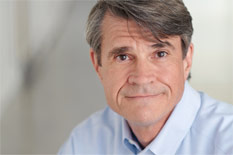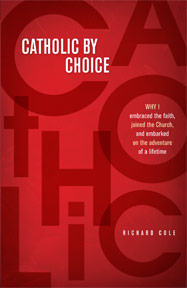Over the years, I’ve planned several layoffs. It’s not a simple thing to do. You have to follow legal guidelines and the timing has to be right, with basically everyone hearing the bad news at once and then ushered off the floor. “We can’t have people sobbing in their cubicles,” as one HR director once told me. I’ve also been the manager who laid off those people, and I’ve been laid off myself. Twice.
I wrote this in New York as I felt the storm clouds gathering.
–
Digging Up the Yews
They laid off two more writers today. I still have a job at the agency, but this time I felt the ground shake. So far, we’ve gone through four rounds of “management-initiated separations,” as in “you’ve been Missed.” The first rounds were directed at other departments. But now the cuts are getting closer, and I’m beginning to feel like a dandelion on a lawn. Each time the mower passes, a few more of us fall, and nobody has a clear sense now of what will happen next month or even next week.
In the hallway, I talk to a manager who’s been dismissed after 28 years with the company. He’s 54. He’s taking it, as we say these days, “very professionally,” which simply means he’s being stoic about accepting what he can’t control.
When I come home, I’m still rattled. I have a wife and a two year-old son, and we live off what I make. Right now, I want to do something very simple and hard, something entirely physical, so after telling my wife what happened and giving my son a hug, I take a garden trowel, rake and hatchet and go out to the backyard to clear away the yews.
A cherry tree stands in the center of the yard. It completely dominates the area, but it also has to compete with a bushy row of yew trees left over from a previous tenant. The cherry tree is beginning to bloom, but some of the limbs are diseased, and our landlord says the tree may not last another year. Something about bugs. I clear away the twigs and leaves at the base of the yews and start to dig and hack away at the knobby roots.
From where I’m working, I can see Lauren standing at the kitchen sink, making supper. Harrison’s head is bobbing around at her elbow. He’s probably asking her about everything that she’s doing—he’s at that age. These days, I sometimes stand back and look at myself, at what I’ve become. Father. Husband. Provider. It still seems strange. Almost every day in the shower, I say to myself “I support a family.” And I do this not so much from pride—I’m only a fair provider—as from the need for a little help and orientation in the morning, like checking a compass or reaching automatically for the railing as I mount the stairs.
I never imagined a future like this. For years I only lived for myself. Now I have two dependents on my 1040 form, and I can’t take anything in the future for granted.
I remember when the stock market crashed in 1987. I was in a planning meeting with our clients. I expected to look out the window and see Forty-second Street filled with debris and paper, with office workers wandering through the traffic, dazed and gibbering. Of course, the street looked like ordinary business, and I remember we made jokes about bread lines and flying stock brokers. At that time, the issues seemed confined to Wall Street, and we hooked our thumbs in our vests and continued discussing our next five-year marketing plan.
The yews are stubborn, and as the sun goes down, I stop and catch my breath, then start to pull the smaller trees up by the roots, knocking the dirt away and cutting the branches into stove lengths. Yews can be attractive as an ornamental, but for some reason, I’m thinking of the word “selfish” as I cut. A selfish little bush starving this cherry tree.
The sky is almost dark, now. I can smell the magnolias blooming in the yard next door. It’s springtime. I’m scared. I’ve been through an acquisition, two mergers and three years of a major recession. I know that if I lose my job, I have all the advantages for getting a new one. I’m male; I’m white and middle class; I have a college degree and a marketable skill. I also know that people who look just like me have disappeared, and I know that advantages by themselves don’t pay the rent.
For a second I see us as a poor family, like Okies from the Great Depression, living out of a car. Lauren is sick and exhausted. The back seat is filled with silent, dirty kids in ragged t-shirts. I’m standing beside the highway, holding up a sign: “Will Work For Food.” I shake the image away. That’s stupid. Still, I’ve never felt so uncertain, felt so many things in my life become tenuous, as I have this year.
I brace myself against the cherry trunk and grab the roots of the last yew. It gives a little, stretching, then snaps underground with a deep, satisfying pop. I draw the roots out and stand up, sweaty. Lauren points out the window, asking Harrison to do something. It’s strange, but at the very time that I’ve felt most confined in my life by forces I can’t control, I feel the calmest. I stand in the yard, and, out of the blue, I say “I have chosen this life.” I like the sound. It’s comforting. I keep repeating the words:
I have chosen
this life. I have
chosen this life.
I have chosen this
life.
At first, I think the words mean that I determine the course of my life, master of my fate, captain of my soul. But no. That’s not right. What they mean is that I have accepted this life. I can make decisions, but only as a part of something larger, and that something will always, naturally, be beyond my will.
And as I lean against the cherry tree in the darkness, I’m surprised to have a dim, unwavering sense that I’m exactly where I should be, doing what I should be doing. If things go bad, if our fortunes sink, I’m sure I’ll see things differently. But for tonight, this acceptance, this embrace, is what I feel, so I hang on to the feeling as a gift. That’s enough for one day. That’s quite a bit.
Harrison appears in his bare feet. He walks to the edge of the bricks and scrunches his toes on the cool moss. Our prayed-for child. I gather my tools, and he asks me to come inside. Well, actually, he tells me: “Come in! Come IN from the DARK!” So I take his hand, and I do.

